Academic: Time is not on the side of American and European tormentors of Syrians
An Iranian academic and political analyst says the time is not on the side of American and the European “tormentors of the people of Syria.”
Mohammad Marandi, a professor at the University of Tehran, made the remarks in an interview with Press TV on Thursday speaking from Damascus, Syria while commenting on the historic visit of Iranian President Ebrahim Raeisi to the Arab country.
On Wednesday, Raeisi arrived in Syria for a two-day visit upon an official invitation by his Syrian President Bashar al-Assad.
This is the first visit by an Iranian president since the US-backed militancy and Daesh terrorism gripped the Arab country in 2011.
The US State Department said on Wednesday that the deepening of ties between Iran and Syria should be of great concern, not just to the United States and its allies and countries in the region, but to the world.
State Department spokesperson Vedant Patel told reporters Washington has made clear to regional partners that it does not support other countries normalizing ties with Syria.
Professor Marandi told Press TV that in many ways the suffering of Syrians today is worse than during the war, because of these “brutal and barbaric Western sanctions.”
“Americans and Europeans want to crush Syria so they can get their way. They failed through the ISIS (Daesh) and al-Qaeda, and their affiliates, now they want to do it through destroying the lives of the whole of the Syrian population,” he stated.
“What is happening is that Iranians and Syrians are now working to overcome that. The Iranians are not fearful of sanctions because the Iranians were sanctioned themselves,” the academic noted.
“And, there is a growing club of countries, let’s call it a club for now, that have been sanctioned by the United States. Therefore, the Russians, and the Iranians can easily cooperate with Syria but also the Chinese are going to increasingly find it more difficult to live with the United States constantly threatening it with more sanctions and increasing sanctions,” he noted.
“So the Chinese are going to be looking for means to do business and trade without using the Western-dominated financial system and the US dollar,” Marandi said.
“So in the future, more countries will be able to cooperate with Syria, and I think some of them right now will be interested in it through Iran – Russia, and China – because of Iran’s current trade relationship with Syria. So we can have a triangular cooperation,” he stated.
Professor Marandi said, “The Saudis and Emiratis and others, as the United States declines, as the West become less powerful, because of all these wars and these confrontations that they are carrying out simultaneously, these countries are going to find it more easy to ignore the United States as time goes by.”
“I’m not saying that things are going to change overnight but time is definitely not on the side of Americans and the European tormentors of the people of Syria,” he concluded.
President Raeisi is heading a high-ranking politico-economic delegation to Syria.
The visit is the first by an Iranian president since the foreign-backed militancy gripped the Arab country in 2011. It focuses on boosting relations between Tehran and Damascus and reinforcing the Axis of Resistance.
The US and its allies invaded Syria in 2014 under the pretext of fighting Daesh. The Takfiri group came into being when Washington was running out of excuses to extend its meddling in West Asia or enlarge its scale.
VIDEO | Press TV's news headlines
Paris silencing pro-Palestine voices
Iran raises alarm at ‘environmental consequences’ of US militarism
Iran: UN Security Council inaction on Israeli crimes ‘catastrophic’
Report: US intel debunks Trump's claim of Iran working on ICBMs
Vance says 'skeptic of military intervention' after progress in Iran talks
VIDEO | Third round of Iran-US nuclear talks concludes in Geneva
Geneva talks: Iran signals firm resolve, rejects US pressure, proceeds with cautious optimism


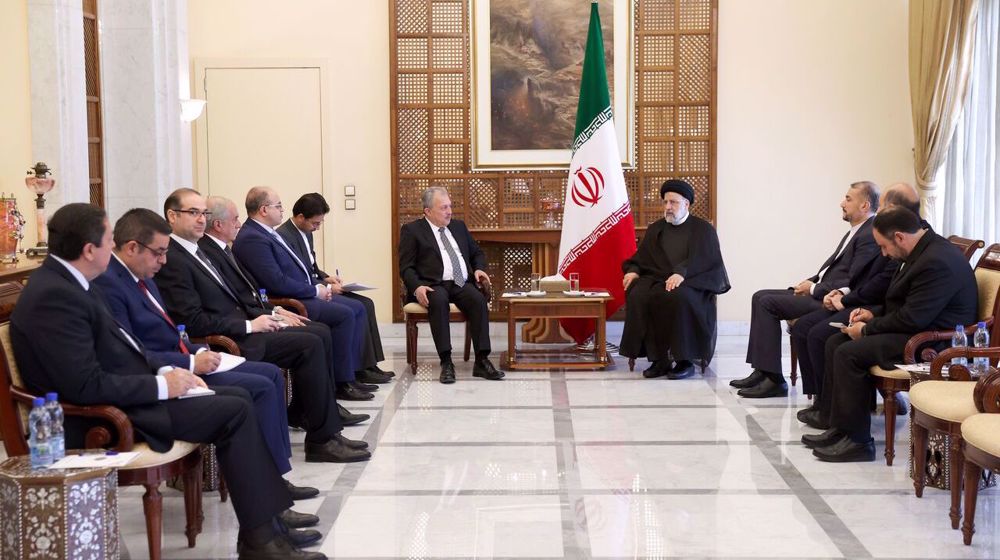
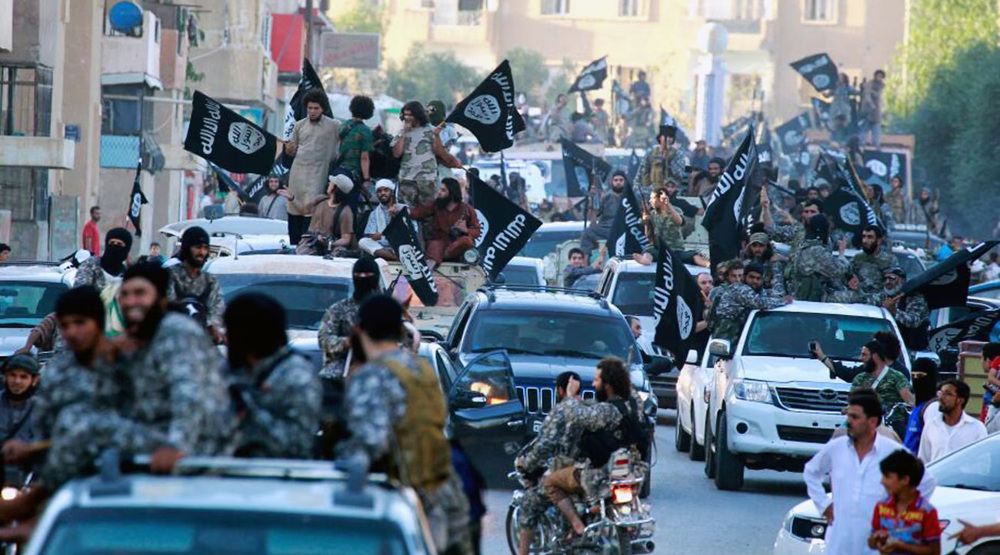
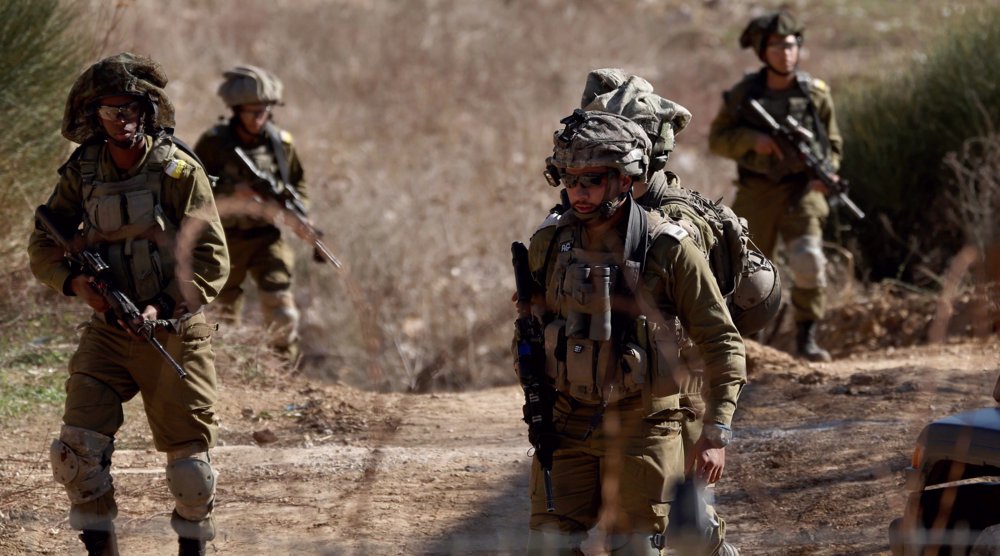
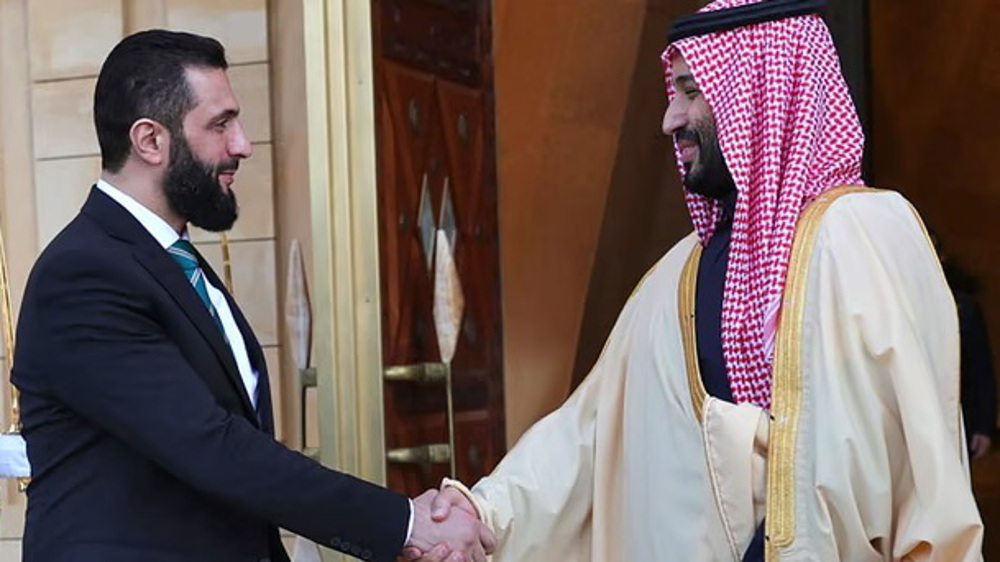



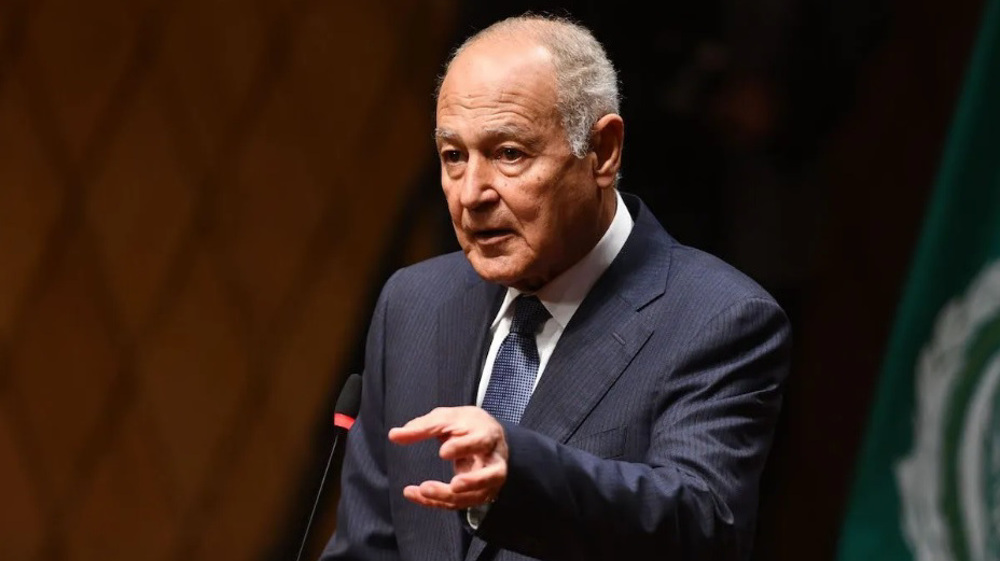
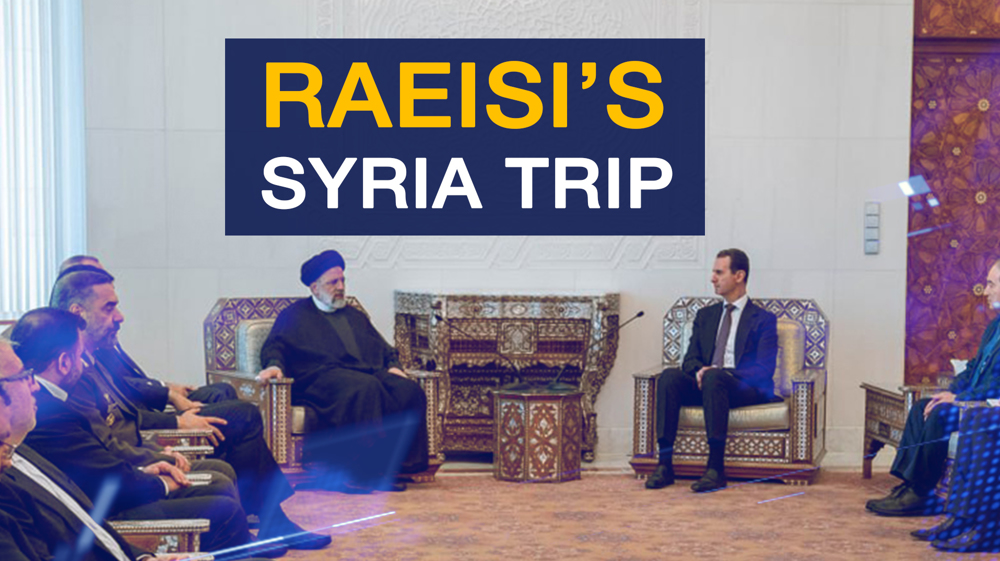
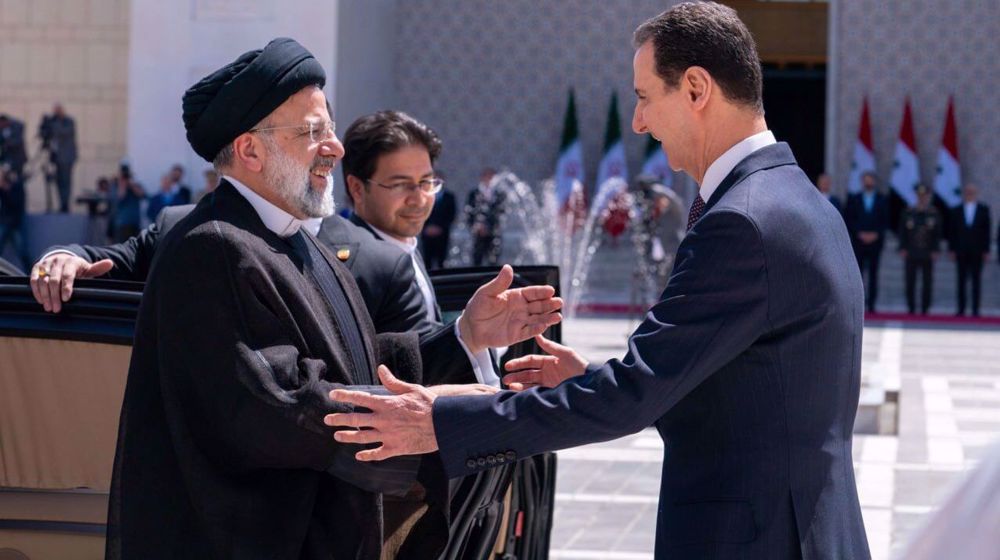
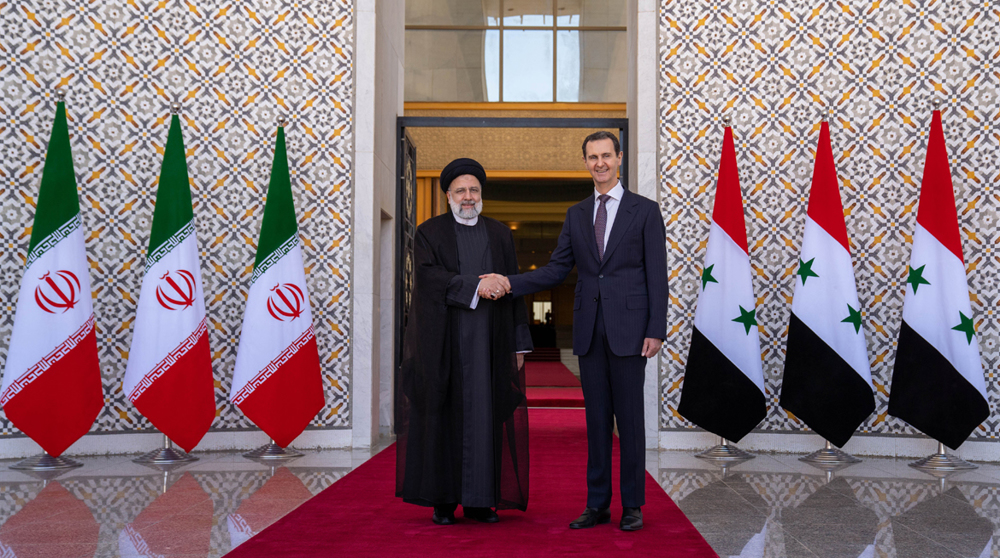

 This makes it easy to access the Press TV website
This makes it easy to access the Press TV website